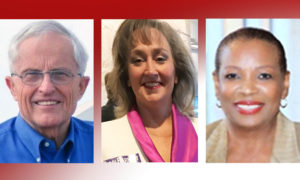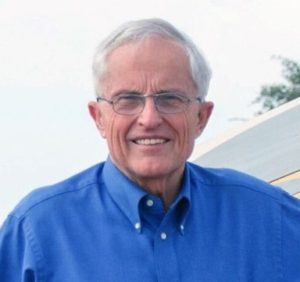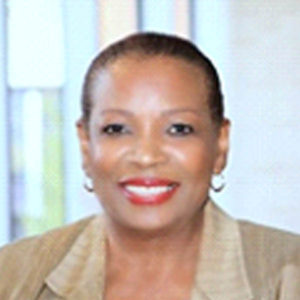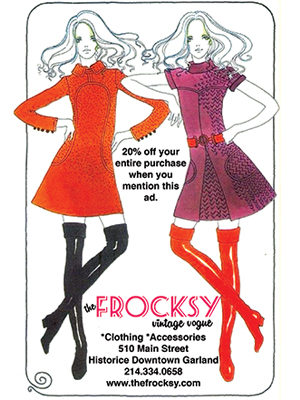The 3 Candidates for Mayor… With 3 Different Approaches to the Job… Get inside their heads…
 The upcoming election will be a very unusual one. For the first time in decades Garland citizens will be electing a mayor to hold that position for only one year. Douglas Athas was elected to a two year term in 2017, but has resigned after serving only one year of that two year term, so the successful candidate will be serving out that year. There are 3 candidates for that one year stint as Mayor of Garland.
The upcoming election will be a very unusual one. For the first time in decades Garland citizens will be electing a mayor to hold that position for only one year. Douglas Athas was elected to a two year term in 2017, but has resigned after serving only one year of that two year term, so the successful candidate will be serving out that year. There are 3 candidates for that one year stint as Mayor of Garland.
We asked the candidates to respond to 3 questions, and we are posting their responses exactly as they were written, and in the order they were received.
Read the answers to our questions as submitted by our 3 candidates, so you can appreciate how very differently they regard the Office of the Mayor of Garland and its duties.
Q1 -In consideration of the current climate, please submit, from your prospective a job description for the position of Mayor of Garland.
A1- Garland operates under the “Council-Manager Government.” Power is vested in an elective “Council” to enact local legislation, adopt budgets, determine policies, etc… The Mayor presides at meetings and is recognized as the head of the City government for all ceremonial purposes but shall have no regular administrative duties.
In the current environment Garland needs a Mayor with an attainable vision, based in facts, to move the City forward. As the elected Mayor I have a proven, strong, inclusive, knowledgably leader with existing respectful relationships to advance the vision of increasing the commercial tax base. A strong business tax base reduces the tax burden on homeowners.
I pledge to be accessible to the staff and residents – in fact, my cell number is 214.334.4533 and my e-mail address is llbd63@gmail.com.
Q2- What in your experience/skill set will best enable you to fill that role?
A2-I am the only candidate with a proven, strong inclusive leadership style that has working experience, knowledge of the budget constraints (beware that big promises come with big tax increases), and existing respectful relationships to immediately move forward with improving Garland.
From 2011-2017 I served as City of Garland District 6 City Council representative.
Q3- If you were able to change any one thing about the City of Garland, what would that be?
A3-Increase Property Tax Base. While on Council several programs were implemented to achieve the vision of 60% of value from commercial property and 40% from residential (current 40% commercial, 60% residential).
On Council, I negotiated and authored a resolution to address infrastructure. This program remains in place and does not require an increase in your taxes.
I have over 30 years’ experience in real estate investment and development which provides a strong background in leading responsible economic development and provides a return to the citizens of Garland. Garland has several Catalyst Studies, which are area specific, focused, long-range plans to guide development. While on Council we implemented several steps of the downtown plan. Garland has several “front doors” that need a focused effort. I have worked with most of Council and with my leadership and your input we will determine the next Catalyst area that will move our community forward. We must not repeat prior mistakes and allow Garland to move backwards (return to a perceived magical past).
I want to be your proven, conservative, strong, inclusive voice at City Hall
Q1 -In consideration of the current climate, please submit, from your prospective a job description for the position of Mayor of Garland.
The city is bruised by recent political turmoil, the loss of our only hospital, and our citizens’ frustration over deteriorating infrastructure.
The new mayor needs to be able to restore hope to citizens. I am amazed at how many citizens are aware of the conflict and want strong, positive leadership restored on city council.
Not only must the new mayor lead in and conduct in a professional, nonpartisan, and careful manner the business of the city during City Council sessions, the mayor needs to reach out to the whole community. The mayor is the only member of City Council representing ALL citizens.
The new mayor must warmly embrace our diverse city (39% Latino; 33% Anglo/white; 13.5% African-American; and 10.5% Asian Americans and generations spanning youth through the very elderly). Our citizens yearn to know our municipal leadership cares passionately about every person, neighborhood, business, and sector.
A2- My tenure in Garland, my 10 years on the Garland Plan Commission, and my years serving in leadership on the city’s Downtown Business Association, its Salvation Army, and Hope Clinic as well as my membership in other Garland organizations such as GAFHA and NAACP give me wide knowledge about our city, its people, and our needs.
My vast experience outside of Garland on state, national, and international boards and commissions and a career history with extensive background in finance, media, personnel management, and executive leadership—as well as U.S. and worldwide travel—will enable me to assume the duties of Garland mayor seamlessly.
Having observed City Council closely for the past 4½ years, I understand the personalities, issues, and needs enabling me to quickly move into a leadership role in this city. I am a consensus builder and realist who believes our leaders must be straightforward with our citizens. I also am a team builder who understands I do not have all the answers and that I must tap into skills of others. I intend to engage citizens in helping build a better Garland.
My experience in management (of a staff of 96) and later on the trustee board of my former employer give me important insight into how to negotiate Garland’s top issue—the loss of our city’s only hospital. I am prepared to reopen talks with that hospital system about the future of our community’s medical care.
Q3- If you were able to change any one thing about the City of Garland, what would that be?
A3-I wish for our whole City of Garland a greater appreciation for our diverse population and the magnificent gifts that such a diversity provides for our city and our people. Warmly embraced and celebrated, our racial, ethnic, language, and cultural diversity can be Garland’s greatest strength. Instead of dividing people, our diversity has the potential to unite us in our common purpose and vision for the future: One people living and working together for a common goal, to build a better Garland. We also can lead other cities in the DFW Metroplex, Texas, and the United States, to a brighter future by modeling for them the ideals of unity amid diversity. An auxiliary to this would be where Garland would become a city where the talents, expertise, and abilities of ALL citizens are truly valued and engaged instead of the city’s spending huge sums of money for outside consultants unfamiliar with the uniqueness of our city.
Q1 -In consideration of the current climate, please submit, from your prospective a job description for the position of Mayor of Garland.
A1- The Mayor of the City of Garland under the City Charter has no administrative duties, these are left to the City Manager, Bryan Bradford, and for what I understand he is very good at what he does. The Mayor is the ceremonial head of the city, presiding over city council meetings, signing municipals bonds, checks, deeds of conveyances and so forth. The mayor has the duties assigned to her by law and the city charter and ordinances. Garland has had, both male and females mayors. I have known and have communicated with every mayor since I became a resident. In my life experiences, I have represented many organizations, professionally and service-wise. I am well educated, knowledgeable and well-spoken. I am friendly respectful and nice. I am general calm amidst the storm. I believe the climate is a productive one for the city and our citizens. We are focused and are, moving forward. I expect, to work and collaborate with my cohorts, in moving Garland forward. Many projects are underway and should continue as scheduled. We are all, flawed human beings, working, to do what is best for the city and our citizens.
Q2- What in your experience/skill set will best enable you to fill that role?
A2- I am the best candidate for Mayor; a Mayoral Candidate, in 2017; a 34 year residency, with 30 years of community service, in Garland. I serve as Precinct Chair, a Member of Dallas County Executive Committee, The Precinct Chair Matters Committee, and my ‘non-profit’ gives educational books to student.
I am disciplined, focus, persistent, goal and solution – orientated , _I am a nurturer. I am opened –minded, collaborative, a relentless worker, exhibiting qualities of honesty, integrity, and leadership. I listen and I am intuitive.
I am a retired Science teacher. I have taught, at the Jr. College, High School and Middle School levels. ‘Teachers teach America’. On the education level I have my Administration Certification from UNT; a M. S. in, Cytology from Tuskegee ; a B. S. in Biology/Chemistry from Stillman ; Insurance Licenses( LUTC); NASD Training; Earth Science Certification from Richland College, and a ‘Sprinkle Systems’ License from -TX
Good leaders know there is, a time to lead and a time to follow. My one voice and my one vote will be used for the benefit of the city and the citizens, _ who are our bosses. I want to be your Mayor; I want to be your voice downtown.
Q3- If you were able to change any one thing about the City of Garland, what would that be?
A3- If I was able to change one thing about Garland, it would be the homeless problems, _ I would eliminating it altogether. America is a wealthy nation with vast amounts of resources. No one should be homeless. Homelessness is a serious problem. 50,000 + people, in some of America largest cities are living on the streets. Mental institutions began to close in the 1980’s, as there was a critical shortage of psychiatrists and nurses; they were spread too thin, in state hospitals said, Dr. Bursten. The staff could not create ”the wholesome, interpersonal environment conducive to getting well.” Instead, he said, even the most well-meaning staff members resorted to overmedicating patients and putting them in seclusion. The hospitals were dilapidated. Patient neglect hastens the processes known as ”hospitalism” and ”social breakdown syndrome,” which include withdrawal, apathy and the loss of social skills so often observed on chronic hospital wards, according to data from the National Institute of Mental Health. Would the situation be different today if, ‘incentives’ were given, to encourage more students to become psychiatrist?
Changes in salaries and job benefits impacted citizens’ ability to afford housing. Affordable housing and job skills, could benefit this group of homeless people.















Social